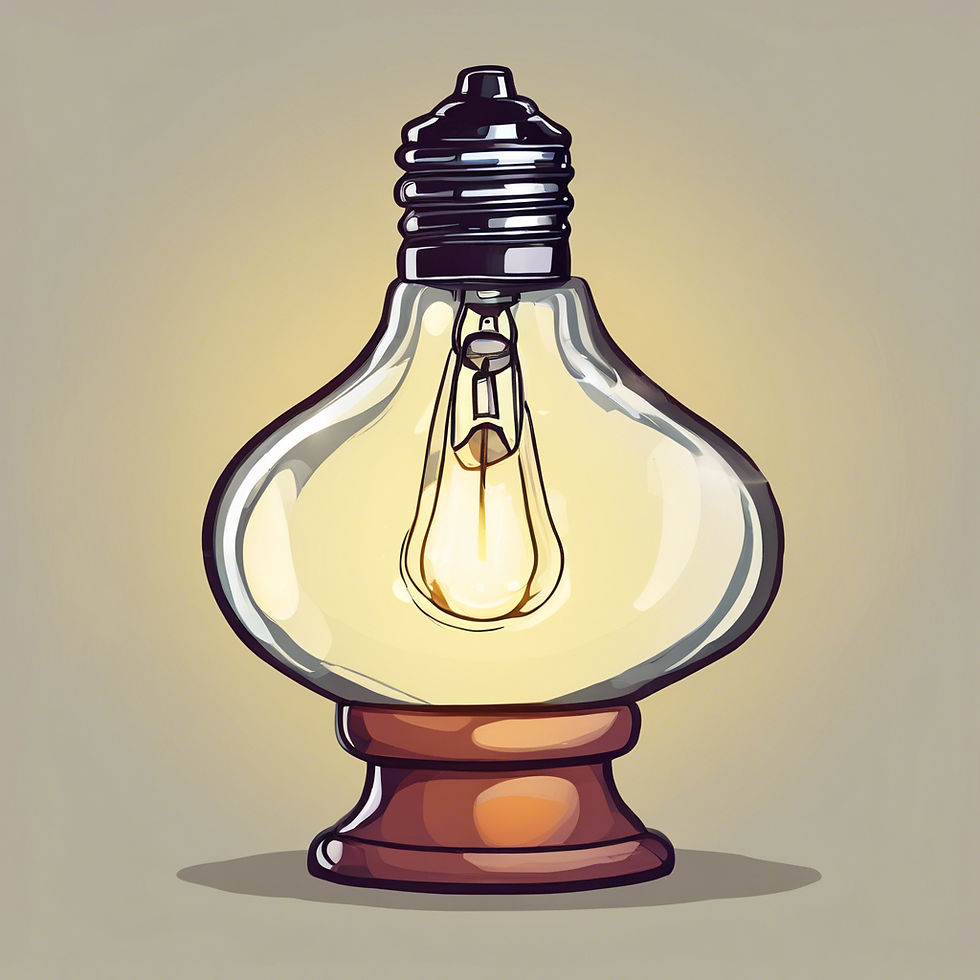It’s no secret that bills add up quickly, and if you're anything like me, you know every penny counts. One proven way to save a bit of cash every month is to lower your energy bill. Luckily, you've come to the right place. Let’s explore energy-saving tips that can help you keep costs down without sacrificing comfort.
1) Lighting: Turn Off & Upgrade
I distinctly remember my father always badgering me to switch off the lights whenever I left a room. As a teen, I never understood why, but as a young adult, I have to admit—it was a good idea. Switching off lights in unused rooms can help lower your energy bill. For an even bigger impact, try these tips:
Switch to LEDs: LED bulbs use up to 75% less energy than traditional incandescent bulbs and last much longer. They’re a simple upgrade with big savings.
Turn Off the Lights: It sounds basic, but turning off lights when you leave a room can save more energy than you think. If possible, use smart plugs or timers to automate your lights when you're not home.

2) Maximize Heating and Cooling Efficiency
Heating and cooling can be the biggest energy expense in any home. With just a few adjustments, you can keep your space comfortable without breaking the bank.
Programmable Thermostats: If your apartment allows, install a programmable thermostat to adjust temperatures based on when you're home or away. Setting it a few degrees lower in winter or higher in summer can save a lot.
Use Fans Wisely: Ceiling fans can complement your heating and cooling system by circulating warm or cool air. In summer, set them to rotate counterclockwise to push cool air down.
Insulate Windows: Use heavy curtains or draft stoppers to block drafts from windows, which helps prevent heat from escaping in winter and keeps cool air in during summer.
3) Seal Cracks and Leaks for Energy Efficiency
Even in newer buildings, air can leak through windows, doors, and even electrical outlets. By sealing these leaks, you reduce the strain on your heating and cooling systems, which helps lower your energy bill.
Weatherstripping: Apply weatherstripping to doors and windows to block drafts.
Caulking: For a more permanent fix, use caulk to seal gaps around window frames or baseboards.

4) Use Water Heaters Efficiently
Most homes come with standard water heaters, but they often waste energy by overheating the water or reheating it too frequently.
Lower the Temperature: Setting the water heater to 120°F (49°C) can reduce energy consumption without sacrificing comfort.
Limit Hot Water Use: Shorter showers and fixing leaks will all reduce your water heater’s energy usage.
Vacation Mode: Turn off your water heater when you go on vacation to reduce wasted energy.
5) Unplug Devices When Not in Use
Even when they’re turned off, many devices still consume energy, a phenomenon called "phantom power." It’s a small but constant drain that can add up over time.
Unplug Chargers: Phone and laptop chargers are the main culprits of phantom power. When not in use, unplug them.
Power Strips: Use power strips to group electronics together so you can turn everything off at once with a single switch.\
6) Choose Energy-Efficient Appliances
If your home includes appliances like a refrigerator or dishwasher, using them wisely can reduce your energy bill.
Energy Star Appliances: If you're in the market for new appliances, look for the Energy Star label, which indicates energy efficiency.
Run Full Loads: Whether it's your dishwasher or washing machine, running full loads reduces the number of cycles needed, saving both water and electricity.
7) Make Your Appliances Work Double Duty
Make your appliances work for you even after they’ve done their primary job. Here’s how:
Oven Heat: After using the oven, leave the door open to let the residual heat warm up your kitchen.
Dry Clothes Naturally: Skip the dryer and hang clothes to dry whenever possible.
8) Time Your Energy Use Wisely
Many energy providers charge more for electricity during peak hours, typically in the early evening when demand is highest.
Off-Peak Hours: Perform energy-intensive tasks like laundry or dishwashing early in the morning or late at night to avoid peak charges.
Smart Plugs: Smart plugs can help you automatically schedule appliances to run when electricity is cheapest.
9) Use Rugs on Bare Floors
Rugs provide insulation for your home, especially during colder months. They act as a barrier between the cold floor and your feet, helping maintain warmth and reducing the need for extra heating. Not only will you feel more comfortable, but you’ll also save energy by relying less on your heating system.

Conclusion: Energy-Saving Tips
As someone who’s always looking for ways to cut down on expenses, I've found that small changes really do add up. By taking steps like upgrading to LED lighting, using energy-efficient appliances, and even laying down rugs in the winter, I’ve been able to see significant savings on my energy bill. It's all about building energy-conscious habits, and over time, these tweaks will make your apartment more comfortable and cost-efficient. If you have any energy-saving tips of your own, feel free to share them—together, we can help each other save and live more sustainably.
Comments